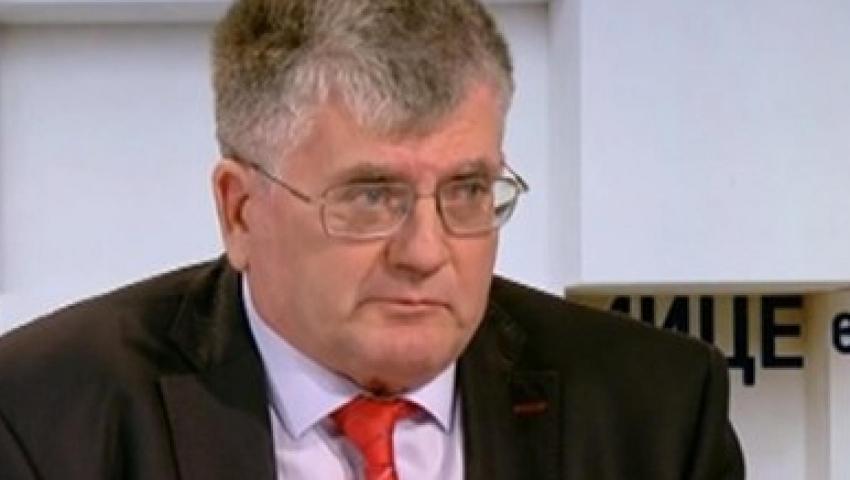Elenko Bozhkov: BGN 3 billion will be lost to Bulgaria's economy annually when the plants in the "Maritsa East" complex are closed

Source: bTV, archive
Tomorrow, the EU will enter a regulation that imposes a moratorium on the import of Russian oil. Bulgaria has the right to an exception, and Lukoil, as a Bulgarian refinery, will be able to export Russian oil products produced by the refinery even after December 5. With the eventual excess profits of this refinery, prices of petroleum products such as diesel and gasoline can be offset. This was explained to BNR by Elenko Bozhkov, who is the Deputy Minister of Energy. "In this way, a reduction in prices for citizens is sought."
However, the head of the EC representation in Bulgaria says that the products produced in Lukoil are for the Bulgarian market and the discount was not given to export to EU countries or third countries. "We are looking for a way out so that the Bulgarian citizens are satisfied first. It was repeatedly explained that if the export of some products that cannot be consumed in Bulgaria and are related to production stops, the refinery will be forced to stop working. Then we have to enter the regional fuel market, which is extremely expensive."
Bozhkov said that he was also interested in why Lukoil did not pay taxes in Bulgaria before. "If they want to work, this is the way. This is a purely practical decision. It's a matter of interests." Turkey has increased its processing of Russian oil by 85% in just two months, he added. "It will probably increase it by over 100% if we go into that market as well." There is no Plan B for the Lukoil refinery, the Deputy Minister noted.
"The only option is to work in this way and export derivatives that cannot be sold in Bulgaria. The state cannot help with their storage because there is no capacity." The option offered by DPS and DB, for the state to take control of the refinery, is not realistic, according to Bozhkov.
"If the parliament imposes it with its decision, however, we have no way not to fulfill it." The Burgas-Alexandroupolis project can give us the opportunity to diversify supplies, he pointed out.
Limiting harmful emissions by 40% means a reduction of 8 million tons of CO2, Bozhkov explained. "For this, 6 million megawatt hours of electricity must be produced, which means that we must completely close Maritsa East 2 or stop the production for the regulated market of the two American plants. This leads to extremely large losses for the Bulgarian economy. In numbers, it means about BGN 2 billion per year if we stop the production of these two household power plants and about 3 billion if we close Maritsa East completely2. This is an extremely dangerous and unacceptable step. Even if we close all inefficient plants, we still can't reach 40%.
It is necessary to think about a change in the way of supporting non-domestic electricity users, explained the deputy minister.
"The total consumption in Bulgaria is 33 million megawatt hours, 11 million are for households. Supporting some companies does not stimulate energy efficiency," Bozhkov believes. He did not rule out the possibility of an increase in the price of electricity for household consumers from July.
